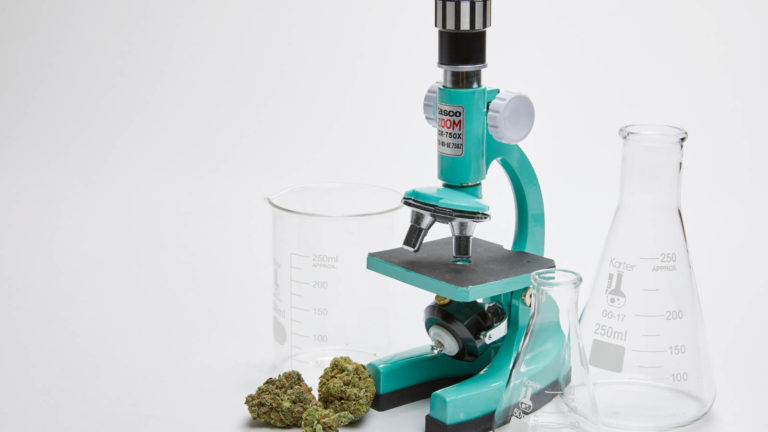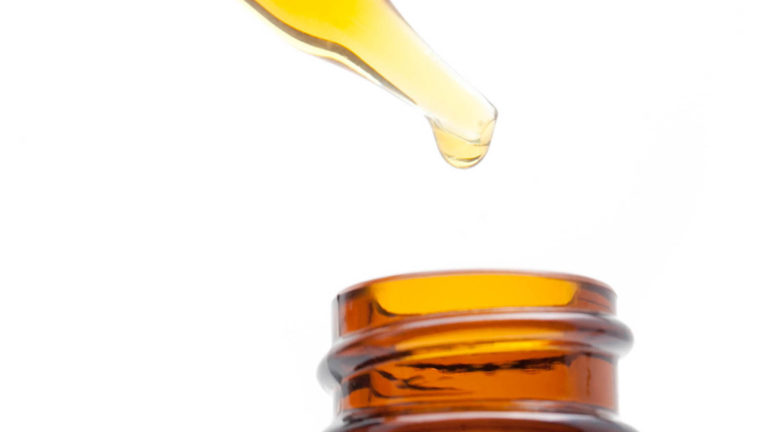Attention-deficit/hyperactivity disorder (ADHD) is a complex neurodevelopmental disorder that is often diagnosed in children around the age of seven. The characteristic symptoms of this condition include excessive restlessness, inattention, and impulsiveness, although those with ADHD may also experience mood instability, trouble coping with stress, depression, or anxiety.
While everyone may experience one or more of these symptoms at some point during their lives, ADHD is diagnosed when the symptoms are pervasive or disruptive enough to create ongoing problems in everyday life.
ADHD medications and treatment options commonly used to manage symptoms include stimulants, non-stimulants, or anti-depressants. These may be accompanied by side effects such as sleeplessness and lack of appetite along with an increased likelihood of heart problems, psychiatric issues, and addiction.
 Photo by: Gina Coleman/Weedmaps
Photo by: Gina Coleman/WeedmapsImage lightbox

Many parents of ADHD children are concerned about the adverse effects of first-line medication and are open to trying alternative treatments. Cannabidiol (CBD) oil has garnered attention in recent years, with numerous anecdotal reports indicating it may help to ease anxiety and a variety of health conditions.
Research overview
Studies that have investigated medicinal cannabis products such as Sativex as a treatment for ADHD have found it helped to alleviate symptoms such as hyperactivity and impulsivity; however, specific research into CBD oil is scant at present.
It has been hypothesized that CBD may help increase dopamine levels. Individuals with ADHD often have lower levels of dopamine, a neurotransmitter in the brain. CBD has been shown to modulate the mesolimbic dopamine system, which may help enhance cognitive processes such as learning, mood, memory, and attention.
CBD also possesses anxiety-reducing properties and may help to relieve anxiety among those living with ADHD.
The studies
A 2018 study published in the Swiss journal “Frontiers in Pharmacology” reported on the experiences of parents who administered oral CBD oil to their children diagnosed with ADHD. Fifty-three children and young adults between the ages of four and 22 received CBD for a median of 66 days. Self-injury and rage improved in 68% of the participants but worsened in 9%. Symptoms of hyperactivity fell in 68% of participants, remained unchanged in 29%, and increased in 3%. Anxiety fell in 47% of children but increased in 24%. Adverse effects included sleeplessness and change in appetite, but they were noted as mild.
 Photo by: Gina Coleman/Weedmaps
Photo by: Gina Coleman/WeedmapsImage lightbox

A 2019 study also published in “Frontiers in Pharmacology” studied the effects of CBD on mice. The mice selected for the study were deficient in the AMPA receptor, which is found in the central nervous system, rendering them a suitable model for hyperactivity disorders such as ADHD. The researchers found that CBD infused into the hippocampus, the region of the brain responsible for spatial learning and adaptation, reduced displays of hyperactivity in a new environment. This study suggests that CBD may dampen hyperactive circuitries in the hippocampus and other parts of the brain.
A 2017 review published in the peer-reviewed “Global Drugs and Therapeutics” discussed CBD as a treatment for pathologies associated with autism spectrum disorder, such as anxiety and behavioral problems. The authors of the study noted that CBD could help to normalize social deficits and cognitive impairments, protect against hippocampal cell death, and improve cognition. The authors also pointed out that CBD reduced anxiety in both animal and human models when administered at moderate doses of about 300 milligrams.
Patient perspectives
Brett Bartel, an adult living with ADHD, began taking a hemp-derived, full-spectrum CBD oil in April 2019 and has noticed a definite improvement in his symptoms. “I've been using CannaFocus,” he said. “It calms my mind in the evening and helps me sleep and I feel more awake and alert, better able to focus during the day.”
Eva Romano Olive's son has been regularly using CBD oil after being diagnosed with ADHD and oppositional defiant disorder,sensory processing disorder, and social pragmatic language disorder, which is similar to Asperger syndrome “He was a nightmare for the school and daycare, got suspended twice, and almost kicked out,” she said.
Olive said that caring for her son was a constant battle, but the day that she gave him CBD, she cried when it helped. “He usually got five 'smiley faces' a day, because he mostly got negative reports, and the first day I used 500 milligrams of Charlotte's Web, he got 35 smiley faces.”
After two weeks, some of the old behaviors returned, such as hitting, spitting, and meltdowns, so Olive increased the dose. She also emphasized that a change of diet significantly helped with managing ADHD symptoms.
 Photo by: Gina Coleman/Weedmaps
Photo by: Gina Coleman/WeedmapsImage lightbox

“Currently he takes 10 drops of Charlotte's Web, and now I add in blueberry terpenes. He has been amazing in school,” she reflected. Olive notes that her son builds a tolerance to the CBD products after about three months, so she changes brands often.
Harriet Riley, whose name has been changed for this article, had a less favorable experience with CBD oil. “I tried it on my grandson, who is 11, for his ADHD. It didn't work out that great,” she explained. “He became very emotional at school, and we had to take him off it. It could have been another medication that didn't go well with it, though.”
What the experts say
James Polston, Ph.D., is the Chief Science Officer at Helius Therapeutics, an Auckland, New Zealand, biotechnology company focused on medicinal cannabis research and development. Polston observed that there is significant anecdotal evidence that CBD oil may help with managing symptoms associated with ADHD, but that there have been no rigorous clinical studies to specifically investigate CBD oil as a treatment for ADHD.
However, Polston acknowledged that scientific inquiry continues to investigate using CBD oil to manage the symptoms of ADHD. “There are many different ideas circulating about how CBD might help with the symptoms of ADHD,” Polston explained.
“Cannabidiol is now known to reduce inflammation, which has been shown to be a contributing factor in ADHD, depression, and autism spectrum disorders.”
 Photo by: Gina Coleman/Weedmaps
Photo by: Gina Coleman/WeedmapsImage lightbox

Polston also pointed to the work of Dr. David Bearman, an anesthesiologist in Goleta, California, who advocates dopaminergic regulation in the treatment of ADHD. “Traditional drugs used to treat ADHD typically work by increasing levels of dopamine in the central nervous system. Dr. Bearman has stated that cannabis appears to treat ADD and ADHD by increasing the availability of dopamine.”
The mechanism by which cannabinoids increase dopamine in the central nervous system is distinctive to how stimulants achieve this effect. “Cannabinoids may represent a novel approach toward dopaminergic regulation in the ADHD population,” he explained.
Polston also underlined that CBD oil boasts an improved safety profile over traditional pharmaceutical therapies for ADHD: “Cannabidiol has been shown to have one of the most beneficial safety profiles that one could ask for in a pharmacological intervention. The obvious benefit that CBD oil may have over first-line medications is that it could be much safer, with none of the abuse liability or concerns for addiction that accompany amphetamines and stimulants.”
On the other hand, CBD may not be as effective as traditional therapies, nor has it been studied for long-term effects. “However, considering that cannabis therapies have been around for thousands of years and adverse reactions are quite rare, the main disadvantage is most likely that it may not work for that individual person,” Polston said.
Bottom line
Animal studies and reviews indicate that CBD oil may help in the management of specific symptoms associated with ADHD, such as hyperactivity and anxiety. Anecdotal reports affirm the usefulness of CBD oil. However, until large-scale clinical studies and randomized controlled trials have been carried out, the benefits remain inconclusive.
Major contributions from Dr. Adie Rae.

